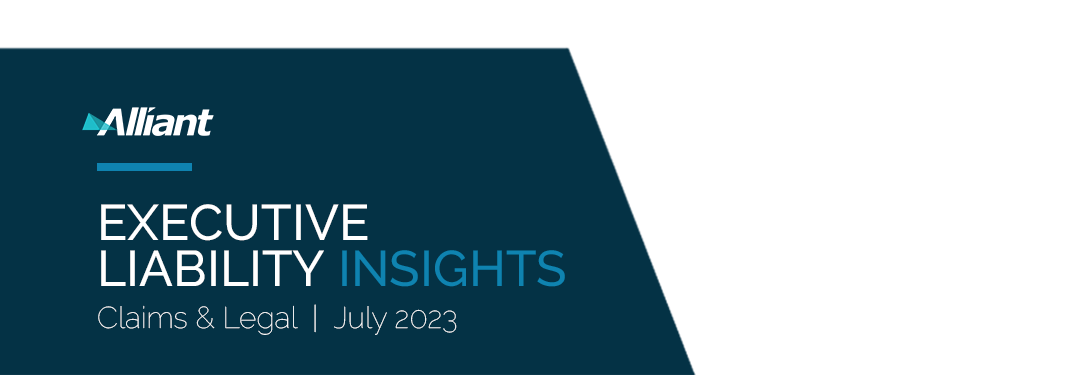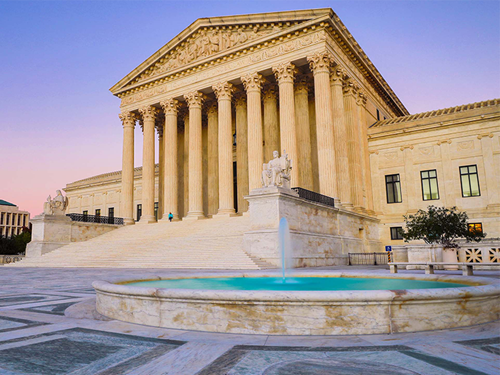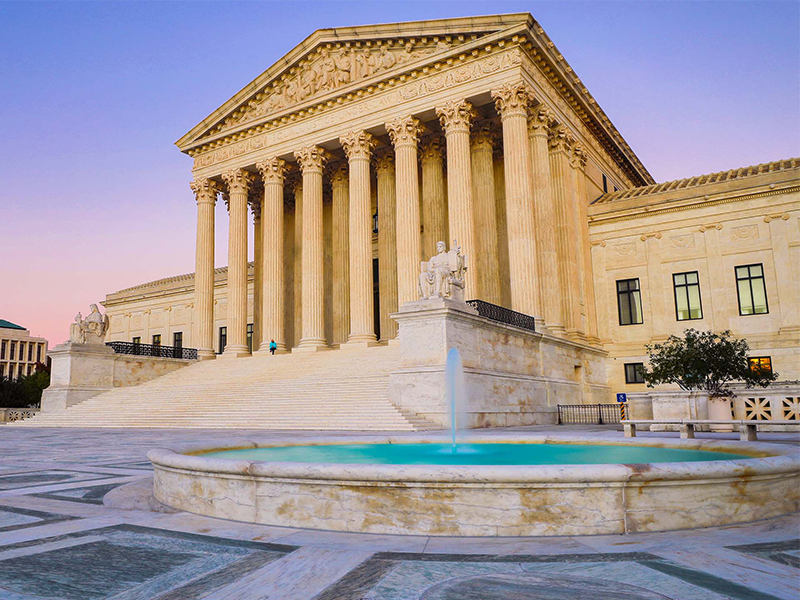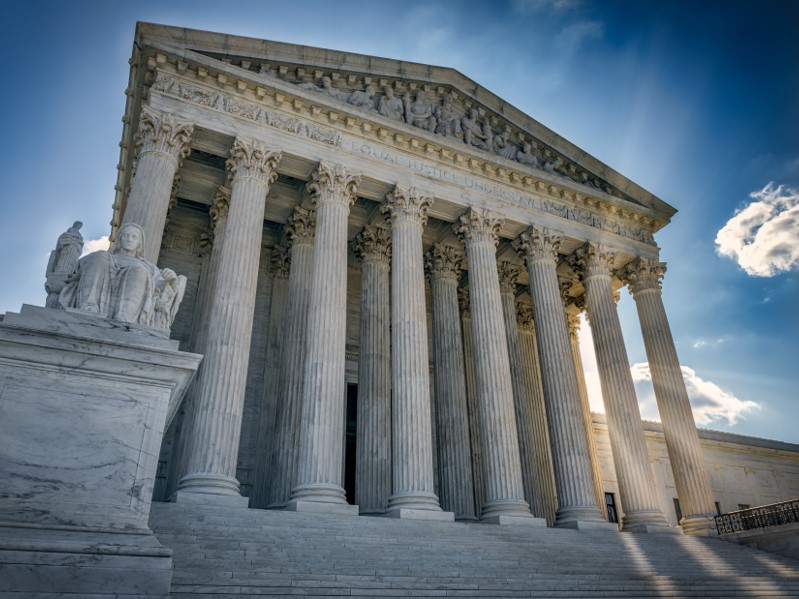
SUPREME COURT UPDATES
SUPREME COURT CLARIFIES STANDARD FOR REFUSAL OF TITLE VII RELIGIOUS ACCOMMODATIONS
Groff v. DeJoy, 600 U.S. (2023).


In a recent decision, a postal worker sought religious accommodation under Title VII to avoid working on the Sabbath. The Supreme Court clarified the standard for refusing an employee’s request for religious accommodation under Title VII, which requires employers to accommodate a religious practice or observance unless the accommodation would cause an “undue hardship on the employer’s business.” For approximately 50 years, lower courts required employers to merely show an accommodation would require more than a trivial cost or effort before refusal.
The Court found that, rather than a trivial cost or effort before refusal, Title VII requires that “an employer must show that the burden of granting an accommodation would result in substantially increased costs in relation to the conduct of its particular business.” Thus, the Court held that going forward courts must consider all relevant factors including the particular accommodation and its impact in light of the nature, size, and operation costs to the employer. The Court also noted that despite the clarification “a good deal of the EEOC’s guidance in this area is sensible and will, in all likelihood, be unaffected.” This appears to indicate that following the EEOC’s prior Title VII guidance will allow employers to meet the clarified standard for refusal of accommodations.
SUPREME COURT STRIKES DOWN AFFIRMATIVE ACTION IN UNIVERSITY ADMISSIONS
Students for Fair Admissions v. Harvard, 600 U.S. (2023).


The Supreme Court struck down admission programs at two leading universities citing that such programs ran afoul of the Fourteenth Amendment’s Equal Protection Clause. A nonprofit founded on the purpose of defending human and civil rights secured by law filed lawsuits against the two leading universities and argued that the admission programs at each university that such policies unfairly discriminated against Caucasian and Asian applicants. The Court found the Clause required elimination of all racial discrimination and applies "without regard to any difference of race, of color, or of nationality ¬[and] is universal in [its] application.” The Court continued, stating “[t]he guarantee of equal protection cannot mean one thing when applied to one individual and something else when applied to a person of another color." The Court found the affirmative action programs at issue lacked sufficiently focused and measurable objectives warranting the use of race, unavoidably employ race in a negative manner, involve racial stereotyping, and lack meaningful end points.” In the wake of this decision, universities will need to remove race as a factor or criteria in admissions considerations.
US SUPREME COURT TIGHTENING THE STANDARD FOR FCA CLAIMS
United States ex rel. Schutte v. SuperValu Inc., 143 S. Ct. 1391 (2023).
United States ex rel. Polansky v. Exec. Health Res., Inc., 143 S. Ct. 1720 (2023).


The U.S. Supreme Court has been active in tightening up liability in the False Claims Act (“FCA”) in two recent decisions. The vast majority of FCA claims are initiated by private parties, or relators, on behalf of the government often without any government intervention. The FCA imposes liability on anyone who “knowingly” submits a “false” claim to the U.S. government, including fraudulent billing under Medicare or Medicaid.
In SuperValu Inc., the legal question before the Court was “if respondents’ claims were false and they actually thought that their claims were false—believing that their reported prices were not actually their ’usual and customary’ prices—then would they have “knowingly” submitted a false claim within the FCA’s meaning?” The Court answered “Yes” because the plain language of the FCA’s statutory text and its common law roots, state that the FCA’s scienter element refers to respondent’s knowledge and subjective beliefs—not to what an objectively reasonable person may have known or believed. Thus, the Court unanimously determined that liability in FCA cases is dependent on whether a defendant subjectively believed its claims were false, not whether it can offer an objectively reasonable basis for its claims.
In Exec. Health Res., Inc., the Court sought to resolve (1) does the government have the authority to dismiss an action if it declined to intervene during the seal period? and (2) if the government does move to dismiss what standard should a district court use in ruling on such a motion? In an 8-1 decision, the Court held that the government may move to dismiss an FCA action whenever it has intervened during the seal period or later upon a showing of good cause. Additionally, the Court noted that district courts must rely on the standards of Federal Rule of Civil Procedure 41, while also acknowledging that “the government’s views are entitled to substantial deference because the case “is on behalf of and in the name of the government and alleges injury to the government alone.”